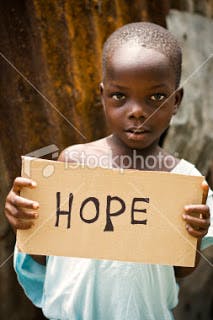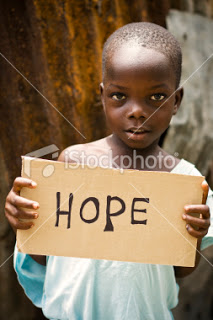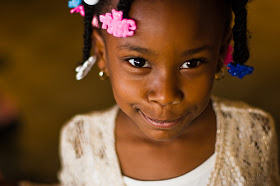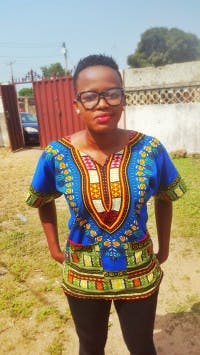The African Woman:Breaking the steroetype
Jan 21, 2015
Story



One of the most monumental moments of my life took place when I was 14 years old. It was a hot sunny day in kabba, the biology teacher Mr. Adeoye walked in and the topic for the week was reproduction, the only thing he said that week that stuck in my brain was the theory of XY chromosomes. Whereby women always produce xx chromosomes as a constant homogametic sex, the distinct heterogametic sex chromosomes produced my men xy determines the sex of the child, if it is x chromosome it was a girl, if it was y chromosomes it was a boy. I was elated and filled with joy to find out that the sex of a child is scientifically determined by men.
THE CRAZE FOR MALE CHILDREN
In African context the pride of a family used to be, and to a large extent still is embedded in the number of male children a woman is able to ‘produce’. A woman is mostly considered a failure if she cannot have male children and the anguish and heart ache that women who do not have male children go through cannot be explained by mere words alone. My aunt has six children all of them girls, you may wonder why… My uncle’s family kept pressuring her for a male child from the time she gave birth to her first daughter till she gave birth to her last daughter, she would cry, pray, go through sleepless nights all for a male child, but each child turned out to be a girl. I love all my girls; they are beautiful, brilliant, energetic and loving. I never understood why my relatives gave her grief over her inability to have a male child. I felt like walking up to each of them and explaining that spiritually we are made to believe that children are gifts that come from God and genetically the sex of a child is determined by a male so if they wanted to torment anyone they should turn their efforts to my uncle!!! My efforts would have proved useless because they were blinded by ignorant beliefs passed down from our forefathers and the illiteracy that clouds their judgement have blocked them from thinking like people of the 21st century. I also contrast myself here because I have a friend, a very close friend who told me he would divorce his wife if the first child she gives birth to isn’t a male; I sat down there, right in front of him, listening to an educated individual speaking like a cave man from centuries ago!!!
The crux of discrimination between a male and a female begins at home, in the family, where before birth prominence is placed on the male child over the female. It takes away from the joy of motherhood if the woman cannot bask in the coming of a new baby but worries over the sex of the child because she knows that is what is going to determine the state of the happiness of her marriage. This discrimination spreads to the type of education male and female children receive while growing up, the type of attention showered on them, the expectations put on them; all of this differs. It begs the question of:
Are male children and female children different apart from sex?
Why should they be treated unequally?
Why do women have to fight harder to achieve everything worthy of note in Africa?
What has the government done to bridge the gap in discrimination?
How has societal stereotype affected the psychology of African women?
What are African women doing to break the stereotype?
How much of a role is played by African women in governance and decision making?
HOW AFRICAN WOMEN POLARIZE EACH OTHER
It would interest you to note that the foundation of discrimination stems from women. The psychological effect of stereotype is so great that women believe that THINGS ARE THE WAY THEY ARE BECAUSE TRADITION DEEMS IT SO. An example is of the mother-in law putting pressure on her daughter-in law for a male grandson instead of sympathizing with another woman who just happens to be in a different situation. The key antagonist and tormentor that my aunt suffered from were from her unmarried sister-in law. Stories abound about women in high places who have failed to use their power of position to empower other women for fear of these women dominating them in future. The practice of injustice and abuse of widows is another example of unfair treatment from one woman to another. Shaving of the head with razor blades that might be infected, washing of the dead body and giving the water to the widow to drink, confining a widow to the same living quarters with the body of her dead husband, torment based on accusation of murder of the widow’s husband, all these are inhuman acts that go against the basic human rights of an individual are crimes carried out by women against each other. The reason is not farfetched in FEAR, the singular, controlling factor that gives African men power over their women.
Sarah Jubrin came out as a candidate for the PDP presidential primary election, it was appalling and shameful when the votes were counted and she only got one vote!!!! There were scores of female delegates in the stands and more women who undermine their power of conviction over their husbands to canvass for votes for a fellow woman. Yet we speak for equality and cry against discrimination but we take no action towards effecting the change that we so desperately need.
A man doesn’t have to prove himself twice, the fact that he is a male is reason enough for society to believe that he will not fail and he is capable. If he loses his wife he can mourn her for a couple of months and remarry without any problems whatsoever. Women need to rise above fear of what has been ingrained in them as norms; we need to open up our minds to visualize the possibilities of change in our society if we stick together against maltreatment, gender inequality, abuse and unfair societal stereotype.
RELEGATION OF AFRICAN WOMEN IN SOCIETY
We do not have enough women in governance. Government can speak all the big grammar they like and give inflated statistics but the reality of the situation remains that women are not represented in government. This can be either because of lack of qualified women for such positions or the refusal of a male dominated cabal to involve more women in key governmental sections of the economy. This is the largest and most pronounced way that stereotype can be taken care of, when women are seen proving themselves in offices or positions that have been previously dominated by men more people will feel compelled to employ more women and treat them with greater respect. As the ‘weaker sex’ we have to fight extra hard, push further , struggle even more to be seen, heard or taken serious. The number of women in parliament and occupying ministerial positions is still less than 25% percent. Government has to do more to increase female representation. Patricia Etteh was the first female speaker in the lower chambers of the National Assembly, her position was heralded as the starting point of change and the dawn of a new era in the development of female participation in governance, but that hope was put out quickly when she shamefully abused the powers of office and lost her seat before she could affect any change. It will take a long time for another endeavor like this to see the light of day.
Women need to start being more socially conscious of themselves by attempting by all means possible to avail themselves to opportunities of education and IT development, we must reject the old and archaic norms of being just housewives, petty traders and the silent partner of Mr. & Mrs. We do not only loose sense of our identities but we increase gender stereotypes when we fail to see that there is more that we can do. Bill Gates and his wife Melinda Gates aren't called Mr. and Mrs. Bill Gates but Mr. Bill and Mrs. Melinda Gates, same as the Iwealas', Who are not referred to as Mr and Mrs Ikemba Iweala but as Mr. Ikemba and Mrs Ngozi Iweala, this is because these women have risen to such prominence in society that their identity cannot be hidden behind their husband's name. It may seem minute, but by undermining the identity of a woman by referring to her with the name of her husband she looses her identity as an individual who exists only with her husband
It would be unfair for me not to mention the fact there are African men who treat their children equally and give them the same opportunities for development. My father treated us equally, he always said to us that the difference between men and women was purely physical and that anything else was left to us, we could go as far as we wanted, reach as high up as we could and to never let anyone treat us as anything less than equals, thus the reason for my feminist tendencies. Women from a sound educational background and upbringing have gone on to achieve great things because they were made to believe that the only limitations that exist are the ones we put on ourselves.
I laud the efforts of some women who are the catalyst of change in African countries;
Ory Okolloh: A Kenyan activist who has utilized the power of social media to enable people post incidences of violences online across Africa
Chimamanda Adiche:One of African’s leading literary voices, her stories put women as heroes who are capable of doing more than is expected of them.
Ellen Johnson Sirleaf: The epitome of a true female African hero who has broken the norm and forced her critics in acceptance of her abilities to change the Liberian economy, awarded Nobel peace prize in 2011 for her efforts in uniting the warring factions of war torn Liberia and securing debt relief for the country.
Ngozi Okonjo Iweala: The economist who proves that there is no difference in the mental capabilities of male and female, secured a debt relief for Nigeria, helped Nigeria obtain a sovereign debt rating, former vice-president of the world bank and African nominee for the post of world bank presidency.
The road to equality and breaking down of stereotype is a long one, my friends used to ask me why I was searching so hard for a job since I was going to get married someday and stay under a man; I told them, I’m searching for a job to have a sense of independence, pursue a career and provide for my family same way a man does. We just need to open ourselves to the opportunity when it avails itself to us and see ourselves as equals for the same positions in an unjust world.




